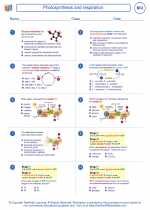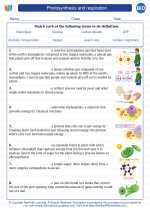Fungi: Introduction and Characteristics
Fungi are a diverse group of organisms that play crucial roles in the environment, medicine, and industry. They are eukaryotic, non-photosynthetic organisms that can be found in various habitats, including soil, water, and as symbionts with other organisms.
Characteristics of Fungi:
- Cellular Structure: Fungi are made up of thread-like structures called hyphae, which collectively form a network known as mycelium.
- Nutrition: Fungi are heterotrophic, meaning they obtain nutrients by absorbing organic matter from their surroundings.
- Reproduction: Fungi can reproduce both sexually and asexually, often through the production of spores.
- Ecological Roles: Fungi play essential roles as decomposers, symbionts, and pathogens in various ecosystems.
Types of Fungi
There are several groups of fungi, each with unique characteristics and ecological roles:
1. Zygomycetes:
These fungi are characterized by their sexual reproductive structures called zygospores. They are commonly found in soil and decaying organic matter.
2. Ascomycetes:
Ascomycetes, or sac fungi, are known for their ascus, a sac-like structure that contains spores. This group includes yeast, truffles, and many plant pathogens.
3. Basidiomycetes:
Basidiomycetes, or club fungi, are recognized by their basidia, which produce spores. This group includes mushrooms, rusts, and smuts.
4. Deuteromycetes:
Also known as imperfect fungi, this group includes fungi with no known sexual reproductive stage. Many of these fungi are important in medicine and industry.
Importance of Fungi
Fungi have significant ecological and economic importance:
1. Ecological Importance:
Fungi are essential in nutrient cycling and decomposition processes, as they break down organic matter and recycle nutrients back into the environment.
2. Economic Importance:
Fungi are used in the production of food and beverages (e.g., bread, beer, and cheese), as well as in medicine (e.g., antibiotics, immunosuppressants). They also have applications in bioremediation and biocontrol.
Study Guide: Fungi
When studying fungi, consider the following key points:
- Understand the cellular structure of fungi, including the roles of hyphae and mycelium.
- Learn about the different modes of nutrition in fungi and their ecological significance.
- Explore the reproductive strategies of fungi, including both sexual and asexual reproduction.
- Examine the characteristics and ecological roles of major fungal groups, such as Zygomycetes, Ascomycetes, Basidiomycetes, and Deuteromycetes.
- Consider the ecological and economic importance of fungi, including their roles in nutrient cycling, food production, medicine, and industry.
By mastering these concepts, you will develop a comprehensive understanding of the fascinating world of fungi and their significance in the natural world and human society.
[Fungi] Related Worksheets and Study Guides:
.◂Biology Worksheets and Study Guides High School. Photosynthesis and respiration

 Worksheet/Answer key
Worksheet/Answer key
 Worksheet/Answer key
Worksheet/Answer key
 Worksheet/Answer key
Worksheet/Answer key
 Vocabulary/Answer key
Vocabulary/Answer key
 Vocabulary/Answer key
Vocabulary/Answer key
